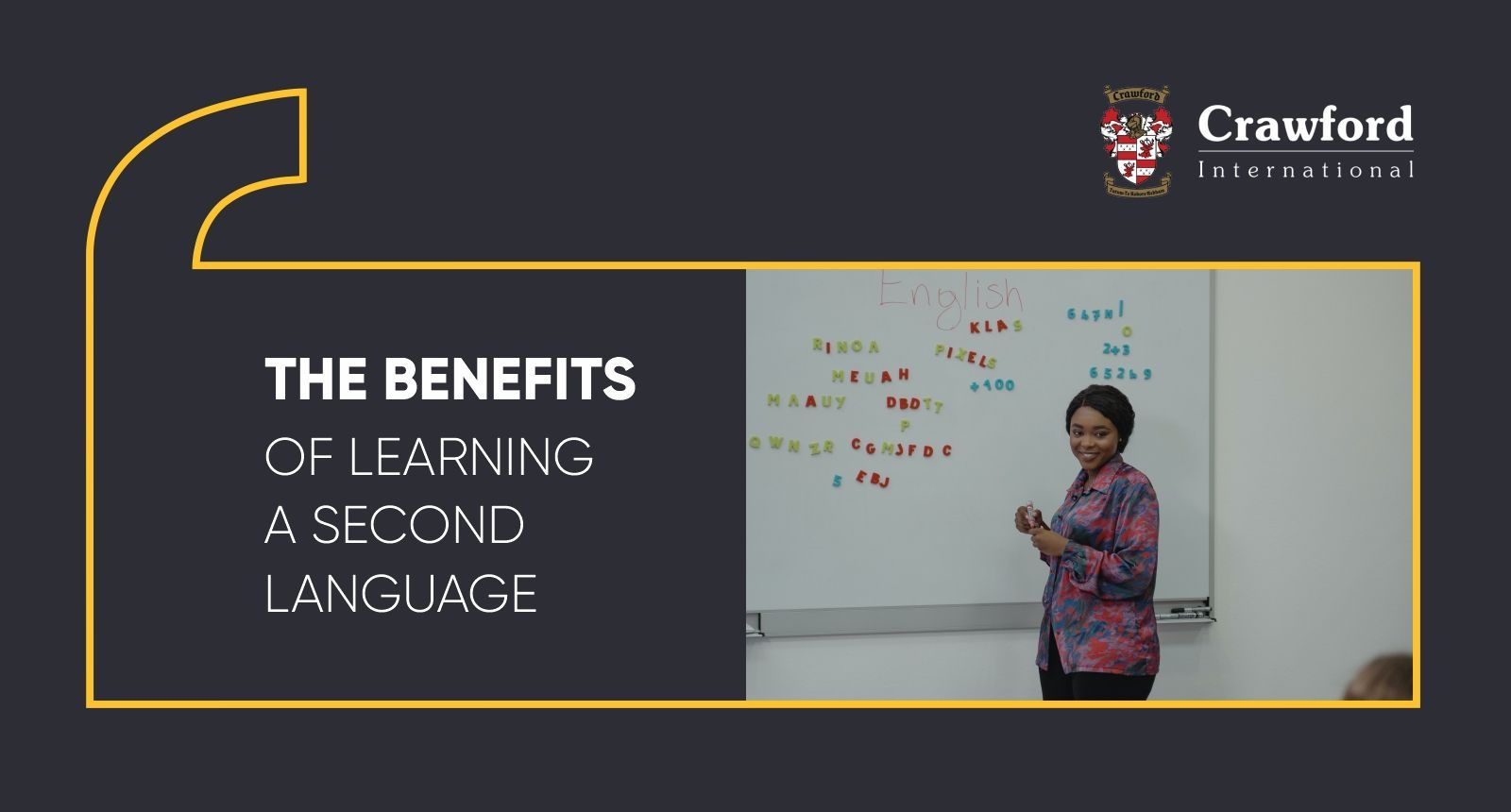The Benefits of Learning a Second Language
February 2, 2024

How Learning A Second Language Could Benefit Your Child
Bonjour, Hola, Guten Tag, Sawubona, Ciao!
Whatever the language, learning a second one has incredible benefits for your child. In South Africa, we are fortunate that a second language is compulsory in our education system, and in some instances, students are even learning a third and a fourth language. This will offer widespread opportunities in the future and will also mold a worldly thinker.
Here, we outline some of the benefits to learning a second language:
1. Becoming a Global Citizen
The first benefit has a strong connection to our Crawford International Schools as it speaks to one of our educational pillars - becoming a Global Citizen.
We strive for a more interconnected world and communication is the cornerstone to this. The ability to understand and communicate with different people across various cultures goes a long way in solving global social issues, such as religious conflicts, inequality and even poverty.
See which languages are spoken across the greatest number of countries - a good consideration when choosing linguistic subjects.
- English: 60 Countries
- French: 29 Countries
- Arabic: 23 Countries
- Spanish: 20 Countries
- Portuguese: 10 Countries
- German: 6 Countries
- Russian: 5 Countries (tied)
- Swahili: 5 Countries (tied)
2. Problem-Solving
It has been proven that children who learn a second language early become better planners and are therefore more focused in the classroom. They are more advanced Critical Thinkers, which is another important pillar in the Crawford International education. But most of all, having a second language teaches children to be better problem-solvers. Did you know that the world’s greatest “problem solver”, Mr. Sherlock Holmes, was multi-lingual? A coincidence, we think not! Research shows that switching between languages causes the part of your brain responsible for problem-solving to work more actively and efficiently. And, in turn, a more active brain will keep neurological issues like Alzheimer’s disease and Dementia at bay in later life.
3. Opportunities for Tertiary Education and Careers
In a time where interest in an international qualification is at an all-time high, it is good to know that overseas colleges and tertiary schools place high value on the knowledge of languages. Again, this ties into another Crawford International Pillar where we aspire to provide an education that is locally and globally relevant. And, while multiple languages will open university and college doors for your child, the ultimate win is the widespread career opportunities across a wide variety of countries.
4. Cultural Tolerance
Learning another language goes beyond the grammar and the pronunciation of the words. When learning a language, a child is also exposed to information of that country and their cultural practices. This nurtures understanding, tolerance and acceptance – something our world desperately needs. A child who is able to respect people who are different to them at an early age, is a child who will grow up to be an adult who embraces diversity and displays tolerance.
5. The Heritage Connection
South Africa is a melting pot of cultures and many children are taught a second language so that they can communicate with their own family members. ‘Heritage language learning’ is often taught by a parent in the home and is only as successful as the commitment of that parent. At some point though, there has to be a transition from “home talk” to formal classes, in order to strengthen the quality of the language understanding. Keeping a family’s rich heritage alive is one of the greatest gifts you can give your child.
6. Makes Travelling Fun
As a travelling child, putting your language lessons into real-life practice can be very exciting. As the saying goes, practice makes perfect and so the more a child speaks, the more fluent they will become. Not only does this strengthen their understanding of the language, but it also helps them to make friends on the beach and to order a milkshake from the waiter. In turn, most foreigners really appreciate any effort visitors make to speak their language – especially a child!
So, there really is no reason why anyone should not attempt to learn a second, or a third language. The benefits far outweigh the work, and it’s never too late to start learning!












